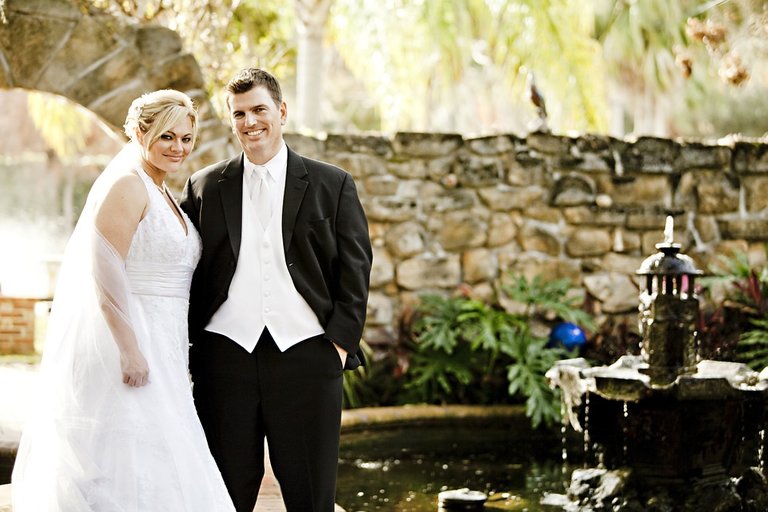PSYCHOANALYST Erich Fromm is quoted as saying: “There is hardly any enterprise which is started with such tremendous hopes and expectations and yet which fails as regularly as love.”
When a romance fails, however, the result is often pain and heartbreak. And the sad fact of life is that the only sure way to avoid getting a broken heart is to avoid getting romantically involved in the first place. True, as far as Christians are concerned, dating is serious business, a way of selecting a suitable marriage mate. Nevertheless, the very nature of dating often makes it somewhat of a trial-and-error process. So it is not unusual for two people to begin dating with the best of intentions—only to find that they simply are not suitable for each other as marriage mates.
The Pitfalls of Young Love
Perhaps the greatest romantic hazard is to date during your teen years. This is “the bloom of youth,” when passion is rising to peak power. (1 Corinthians 7:36) Dr. Ari Kiev observes: “For most young people, relationships with the opposite sex . . . are frequently aggravated by an abundance of confusing sex drives.” No wonder, then, that youths often fall ‘in love’ with the greatest of ease. “I met this fellow,” recalls a young woman named Barbara. “We corresponded maybe for about a year. And then in one of his letters, he said that he loved me. I said to myself, ‘I’ve only seen him once. How in the world can he say that?’”
But even when teen couples try to restrain passion and pursue a relationship on the basis of compatibility, the odds are slim that they will stay compatible! Why? Because a teenage personality is in a state of flux. You are discovering who you are, what you really like, what you want to do with your life. Things important to you today may mean little tomorrow. Teen romances are thus often doomed relationships, seldom culminating in marriage.
Wisely, then, the Bible recommends marriage only for those “past the bloom of youth.” (1 Corinthians 7:36) This would rule out dating while a person is still very young. Following this advice may not be easy, but it will certainly “remove vexation from your heart, and ward off calamity from your flesh” if you do not date until you are old enough to marry.—Ecclesiastes 11:10.
Looking Before You Leap
Nevertheless, simply being older does not make one immune to heartbreak. In her book Love Lives, Carol Botwin pinpoints how even adults sometimes fall into romantic pitfalls: “They leap into relationships too fast. . . . They want commitment too fast.” Giving your heart to someone you hardly know is one sure way to break it.
“You look at things according to their face value,” said the apostle Paul to Christians at Corinth. (2 Corinthians 10:7) Do not make a similar mistake by getting romantically involved purely on the basis of physical appearance. First try to find out what kind of person he or she is. If circumstances do not lend themselves to getting acquainted at a safe distance, you might discreetly determine if this person you are interested in is well reported on by others.
The Bible says that a capable wife’s works would “praise her even in the gates.” (Proverbs 31:31) You can similarly expect a fine Christian man or woman to have a good reputation. If it turns out that he or she has a dubious record—perhaps known for starting relationship after relationship and then backing out when things get serious—beware! Your feelings may very well be the next ones trampled on.
Speaking Truth
Even when someone’s reputation seems to be good and the interest is mutual, it is still premature to start planning your wedding. A closer examination of this person may well reveal serious personality flaws or spiritual weaknesses. How, then, can you get to know what this one is really like? While there is nothing wrong with engaging in recreational activities together, courtship serves its purpose best when it also includes some serious confidential talk.—Compare Proverbs 15:22.
What are your goals? Your interests? Your views on having children? Budgeting money? It is most important that you ‘speak truth with one another,’ not bending the truth because you fear losing this person. (Ephesians 4:25) Sooner or later the real you will come out anyway. And you are better off letting the other person know just who you are and what you want out of life than to begin a relationship that is likely to terminate in disappointment—or a miserable marriage.
But what if the other person resorts to pretense to keep the relationship alive? Warns the Bible: “Anyone inexperienced puts faith in every word, but the shrewd one considers his steps.” (Proverbs 14:15) Not that you should be overly suspicious, but it is only reasonable to try personally to determine if this person’s actions speak as loud as his or her words.
Learning where he or she stands on key issues is something that should be done at the outset—not later on when both are too emotionally involved. Steve, for example, was looking for a marriage mate that shared his devotion to the Christian ministry. Soon he became interested in a girl who was very attractive to him. He recalls: “But then I started to realize she didn’t have any goals, and she wasn’t very active as a Christian.” Steve wisely called off the relationship.

image source
Too Close for Comfort
This points to another important aspect of avoiding heartbreak. Judy puts it this way: “I’ve learned from past experiences that it’s so easy to get emotionally involved. Sometimes you let the person get too close, and even when you find you don’t love each other, you’re so emotionally involved, you’re scared to hurt the person.”
The Shulammite girl of Bible times was evidently quite aware of the power of unbridled romantic emotions. So when being wooed by powerful King Solomon, she told her girl companions “not to awaken or arouse love in [her] until it feels inclined.” (Song of Solomon 2:7) It may likewise be prudent to keep a strong grip on your feelings when first getting to know someone.
This would include avoiding premature or inappropriate expressions of affection. The principle applies: “Can a man rake together fire into his bosom and yet his very garments not be burned?” (Proverbs 6:27) Kissing or holding hands at the opening stage of a relationship is counterproductive. Such activities may not only arouse immoral sexual desires but also suppress good judgment and objectivity. You can hardly make a cool judgment about someone if your passions are aroused. Besides, heavy displays of affection simply worsen the pain of breaking up if a relationship does not work out.
When Judy finally began dating a young man, she was thus careful to let the relationship develop gradually, maintaining a safe distance until she was reasonably sure he was the man she wanted to marry. “Then I knew it was all right to let my feelings for him develop,” she says.
Courtship has the potential both for happiness and for misery. How you handle courtship has a lot to do with the outcome. True, there is no way of guaranteeing that a relationship will work out. And even after taking every precaution, heartbreak can still occur. Nevertheless, by dating only when you are ready for marriage, keeping your emotions under control, and exercising due caution, you can do much to minimize heartbreak and maximize the possibility of a courtship that will result in a happy marriage

image source


Interesting...
interesting.....:)
https://steemit.com/travel/@warsishah/prophet-saleh-bin-hood-a-s